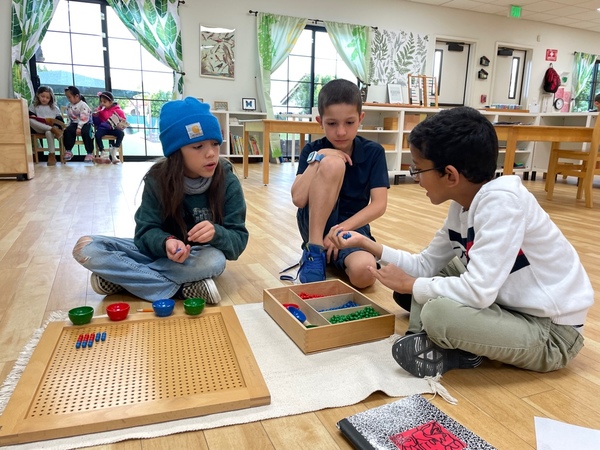(858) 759-0631
Managing children's screen time is becoming increasingly tricky as technology options grow. At one time, TV ruled—and there were far fewer networks and media options. Today, kids have smartphones, tablets, laptops, electronic games, and many age-appropriate but inappropriate TV programs. Therefore, parents should address the Rules of Engagement with their children concerning all this content before allowing them access to the use of these devices.
Educators are keenly aware of computers' impact on elementary school students. Our school is focused on individualized learning in a community where thousands of high-tech, biotech, telecom, and life sciences employees live.
Patricia Greenfield, a professor of psychology at UCLA, insists on taking tech out of schools and shares "A lot of school systems are rushing in to put iPads into students' hands, but have they thought about the social cost? Face-to-face social interaction is a key component of the education process. But, unfortunately, kids are spending more time than ever in front of screens, which may inhibit their ability to recognize emotions." Recently, Greenfield co-authored a study concluding that a lack of social interaction in children is an outgrowth of too many technology options they are engaged with.
We do not use a computer as a learning tool until the third grade. Teachers want kids to absorb the real world—not the virtual world. In Montessori, face-to-face interactions and learning go hand-in-hand. Those interactions are crucial for first and second-year elementary students. Students lose unique skill sets like walking through the library and picking up a book whose topic they just are curious about when technology rules them. It's far easier to "Google" a topic on Wikipedia, where everything is summarized, rather than going to the library, using the Dewey Decimal System, and reading several books to learn more.
In general, Montessori schools are interested in lifelong learning rather than quick-stop answers—and that's what separates Montessori from the public school down the street or San Diego's Private Elite Four (Parker, Preuss, Bishops, Cathedral). Computers have a place in education, but not until students are ready. And they have a place at home when adequately supervised.
Does Electronics Addiction Affect Social Skills Development?
Parents have the right to push back against the ongoing campaign for more kid screen time. The assumption that it's inherently intelligent to have children play on computer devices must be examined within the context of 'tech as a tool.' Children need to talk, interact and play. It's up to parents to supervise computer time at home while also engaging them in face-to-face conversations and participation in daily activities. One way to minimize it is to begin a routine of exercising together after school!
Dr. Marjorie Hogan, Pediatrician at Hennepin County Medical Center (HCMC), is one of the thousands of members of the American Academy of Pediatrics (AAP). She shares that "video games can act as a good form of entertainment when used judiciously". The concern is the total amount of time that kids spend watching TV shows, watching videos and playing video games. During this age of burgeoning media technology, we must remember that allowing children to use too much technology can become a blanket form of entertainment. Therefore, one midpoint option is to strike a happy balance. Dr. Hogan also insists "Make technology a part of kids' lives—but in a planned and sensible way. Educational screen time is important, but parents and kids must interact on common sense and practical level."
As parents, we must help our children learn to manage their time with technology to avoid withdrawal. For example, we can take advantage of technology positively by putting books and brain puzzle games on computers so our kids are doing productive things. Or even watch TV shows together like Nova, the Electric Company, Sid the Science Kid, or the Wild Kratts.
Thirty minutes alone together after school makes a big difference. Press for more face-to-face rather than screen-to-face activities. Participation in the real world with natural parenting and increased playground and playtime activities work. At Lifetime Montessori School, students are taught good nutrition as part of a healthy diet. Ensuring we feed our children a healthy technology diet is another vital signpost.
Parents and children can build healthy guidelines about what computer devices, apps, and games to play. Then, determine when to play, how long to play, and why we create and follow our collective guidelines. It's to both the parents and their kids' benefit to decide how much time to spend on social media…then build consensual choices about what you think is appropriate.

